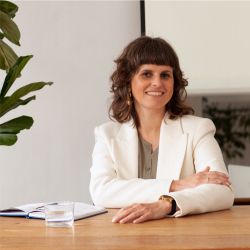On March 31, 2022, I sit eagerly in front of my laptop, ready to join the new cohort of an online coach training program. The session begins with introductions, where everyone gets a chance to share who they are, where they come from, and what brings them to coaching. I wonder what I will share. I recognize my need to share the experiences that led me here. I am, after all, an expert in my current field!
Early on, we are introduced to the concept of having a “beginner’s mindset.” We are encouraged to leave some of our preconceived ideas behind and welcome the discomfort that comes with being a beginner. We talk about the stages of adult learning and how, inevitably, unconscious incompetence will make way for conscious incompetence until we reach a state of conscious competence and, ultimately, unconscious competence.
Not long after the start of the program, I am confronted with the painful realization of my limited experience and knowledge. I must unlearn certain habits and behaviors. I soon realize that a very deep transformation needs to take place. I need to have a beginner’s mindset.
In his book, The Creative Act: A Way of Being, Rick Rubin, a world-renowned music producer, discusses the benefits of having a beginner’s mindset. He highlights how this approach aids us in finding innovative solutions to old problems and fostering inventiveness and creativity by facilitating the flow of creative ideas.
“There is great power in not knowing.”
Rick Rubin
When we come from a place of having mastered a certain skill or task, our vision becomes constricted. We assume we know the answers and therefore do not pause to reflect or question. We become blinded to our own shortfalls. Moreover, we become familiar with how things are and refrain from seeking an alternative path. The beginner’s mind can free us from habitual practices and make room for a fresh approach.
The beginner’s mindset was particularly challenging for me, as I had become comfortable in my familiar work role. My incompetence in learning this new skill made me feel exposed and vulnerable. Yet, accepting this discomfort gave me permission to ask questions and be curious. It made room for a playful approach. Starting the training program with this mindset allowed me the freedom to explore and even to make errors while learning. When self-criticism resurfaces, I gently remind myself to return to the beginner’s stance.
With the training completed, I reflect on how this mindset can form part of my practice. A beginner’s mindset as a coach allows me to really be present with my clients, preventing assumptions that might obscure underlying issues. Nancy Kline’s book, The Promise That Changes Everything: I Won’t Interrupt You, reflects on the power of refraining from interruption and allowing the client to speak. The coach focused on appearing competent might offer a premature question, which could lead to a missed opportunity, not allowing the client to continue with their train of thought.
To maintain the beginner’s mindset, I ask myself:
- What might familiarity with this client/situation/environment cause me to overlook?
- How can I approach this in a new and fresh way?
- Can I shed preconceived ideas to surprise myself?
- Is there an element of play that I can allow here?
- Can I allow myself to experiment without being too focused on the outcome?
- Are assumptions preventing me from really seeing and hearing the client?
The person who truly embodies this mindset maintains an open, curious posture that allows for exploration and even being wrong, fostering continuous learning and sharing of ideas.
Coaching is an art. Just as a beginner’s mindset can free an artist to explore unfamiliar mediums and techniques, so can this mindset enable both the novice and experienced coach to remain open to new approaches. Cultivating this mindset paves the way for clients to do the same.
Disclaimer
The views and opinions expressed in guest posts featured on this blog are those of the author and do not necessarily reflect the opinions and views of the International Coach Federation (ICF). The publication of a guest post on the ICF Blog does not equate to an ICF endorsement or guarantee of the products or services provided by the author.
Additionally, for the purpose of full disclosure and as a disclaimer of liability, this content was possibly generated using the assistance of an AI program. Its contents, either in whole or in part, have been reviewed and revised by a human. Nevertheless, the reader/user is responsible for verifying the information presented and should not rely upon this article or post as providing any specific professional advice or counsel. Its contents are provided “as is,” and ICF makes no representations or warranties as to its accuracy or completeness and to the fullest extent permitted by applicable law specifically disclaims any and all liability for any damages or injuries resulting from use of or reliance thereupon.
Authors
Post Type
Blog
Audience Type
Coach Educators, Experienced Coaches, External Coaches, ICF Chapter Leaders, Internal Coaches, New Coaches, Professional Coaches, Team and Group Coaches
Topic
Become a Coach, Discover - Your Coaching Career
Related Posts
The Power of Active Listening in Meaningful Coaching: Why Active Listening is the Most Essential Coaching Competency
Of all the foundational coaching competencies identified by the International Coaching Federation…
Allyship in Action: Coaching as a Catalyst for Change
Allyship is often framed as a value or an intention. In practice,…
Grace Under Fire: Building Stress Resilience for Coaches and High Achievers
There’s a unique kind of pressure that lives at the intersection of…







